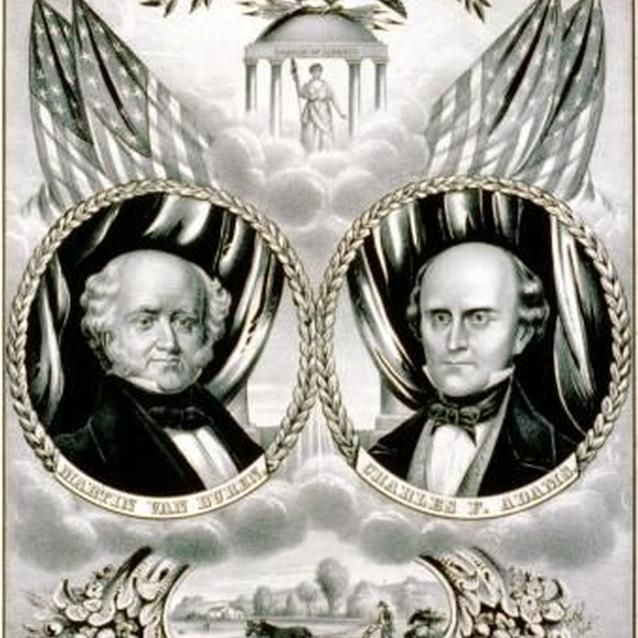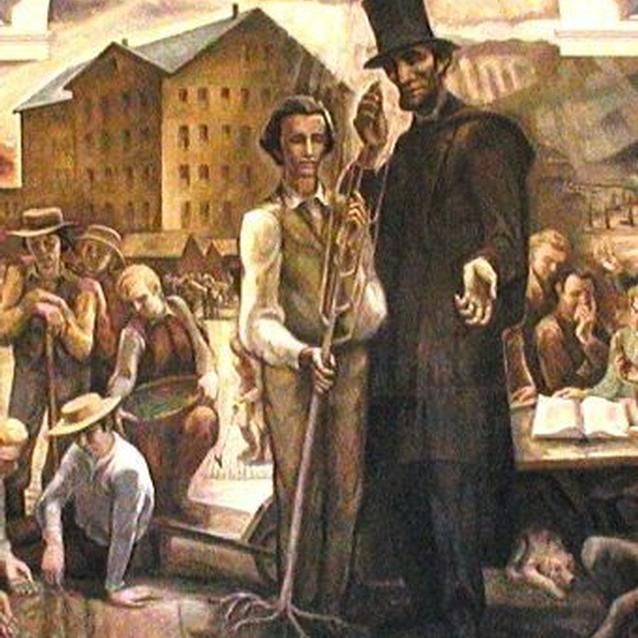Abraham Lincoln is best remembered as the man who guided the U.S. through the Civil War and saved the nation from permanent disunion. Less known but equally important is the active role he played as the architect of the modern American West.
"I think... that the wild lands of the country should be distributed so that every man should have the means and opportunity of benefitting his condition." Abraham Lincoln, reflecting on the proposed Homestead Act

Library of Congress
In a flurry of legislative activity in mid-1862, Congress passed and Lincoln signed four bills and issued one proclamation that forever changed the character of and opportunities in the American West. His enlargement of the federal role in the settlement of the western states and territories can be loosely classified as an early version of the "New Deal" programs initiated by President Franklin D. Roosevelt to combat the Great Depression in the 1930s.
Lincoln's goals in approving these important pieces of legislation were twofold. First, he wished to encourage settlement of the west, which would accelerate its commercial, industrial and agricultural development; secondly, he sought to establish a western population that was sympathetic to the Union cause. Recall that during mid-1862 when Lincoln approved these bills, Union forces - especially those in the Eastern Theater - suffered from ineffective leadership and, consequently, regular defeats at the hands of various Confederate armies.
Lincoln and most in Congress feared the prospect of a negotiated peace with the South, knowing full well that victorious Southerners would attempt to expand into the West and take slavery with them. The Republican Party was formed in 1854 to oppose the spread of slavery to the West, and in 1862 Lincoln meant to continue that opposition even in the event that the Confederacy gained its independence. By populating the West with Union sympathizers, technology, and institutions, Lincoln hoped to avoid a future Civil War by denying Southerners the opportunity to expand westward.

Chris Koleno, Penn State University
The four bills and one proclamation signed into law by President Lincoln as part of this "Western New Deal" were:
1 - The Department of Agriculture Act, May 15, 1862: This bill created the Department of Agriculture as an agency designed to promote U.S. farming and carry agricultural technology and techniques to the West.
2 - The Homestead Act, May 20, 1862: The Homestead Act opened millions of acres of the public domain to settlement and cultivation. This Act was open to anyone who met very basic and progressive requirements, including women, immigrants, and, beginning in 1868, African Americans. Eventually, homesteads were found in 30 states and covered 270 million acres.
3 - Pacific Railway Act, July 1, 1862: This law created the great transcontinental railroad, which was completed in 1869 and linked the east and west coasts. Lincoln ensured that the railroad ran along a northern rather than southern route. The southern route had been the one preferred by Southern politicians prior to the Civil War.
4 - The Morrill Act, July 2, 1862: The Morrill Act created the land grant college system, whereby states were given title to various western lands to sell. Funds generated from these sales were to be used to build agricultural and technical colleges in those states. Many modern universities in the West and other parts of the nation were founded as land grant colleges.
5 - The Preliminary Emancipation Proclamation, September 22, 1862: By issuing the Emancipation Proclamation, Lincoln established the total abolition of slavery as a Union war aim and put African Americans on the road to citizenship. After the war, many former slaves moved west in search of new opportunities away from the South. Following the passage of the 14th Amendment, which granted these former slaves citizenship, many became homesteaders.
Lincoln's approval of these laws had important short and long term impacts on both the course of the Civil War and the future of the American West.
Last updated: September 20, 2019
